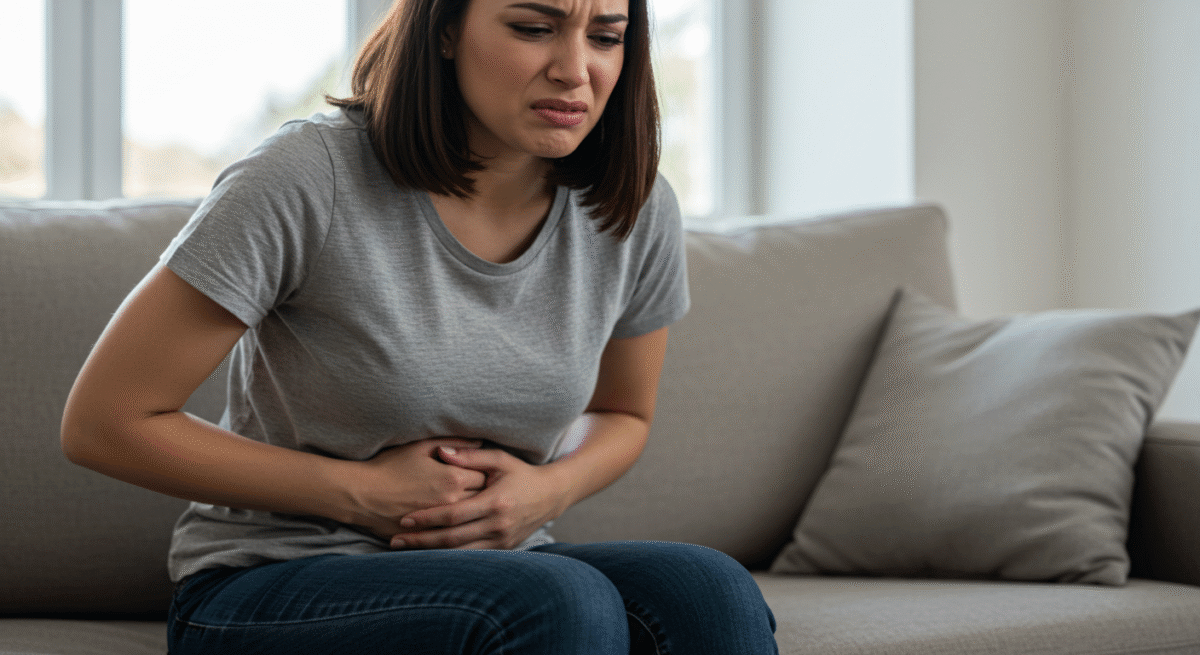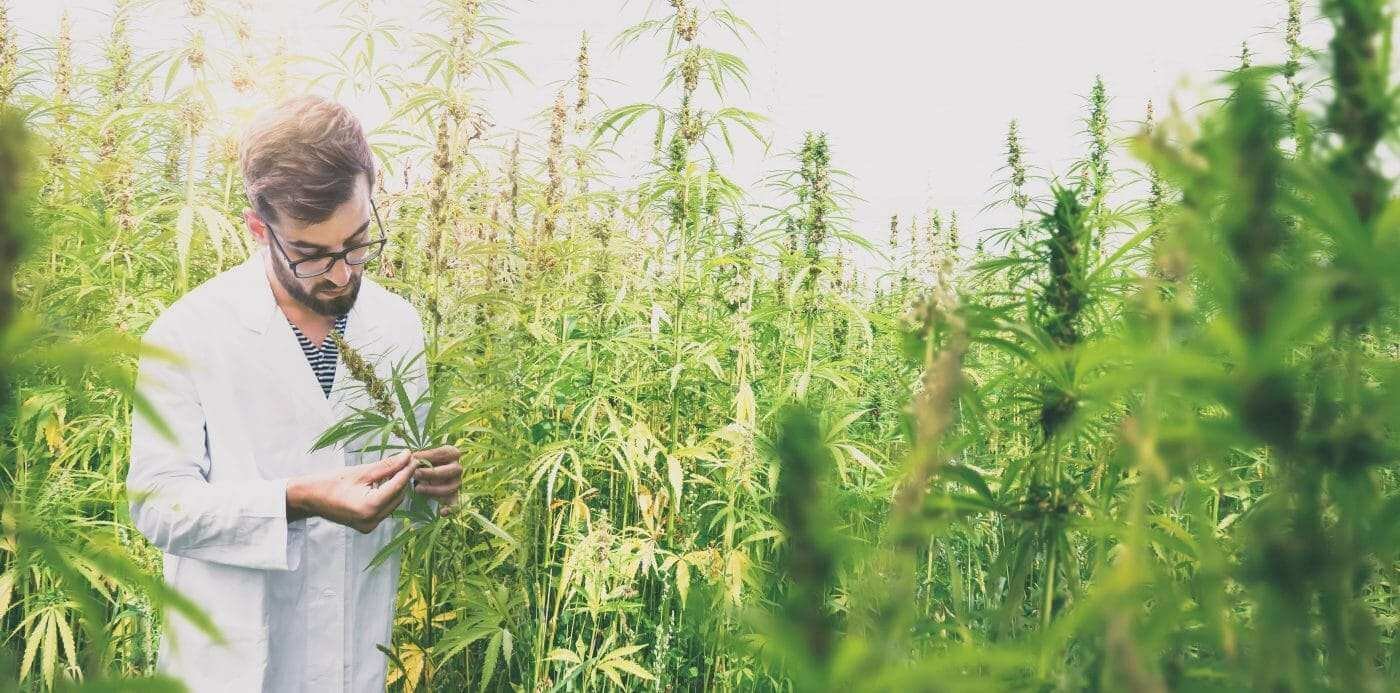A beginners guide to CBD, Health and Wellness
CBD for IBS: The Science-Backed Guide to Natural Gut Relief
Table of Contents
IBS affects about 5% to 10% of people worldwide. Millions of people are looking for relief from this chronic gut condition. The growing popularity of CBD reflects this search for solutions. A 2019 survey shows that 14% of Americans use CBD products to help with various health issues, including pain and anxiety. People turn to CBD because standard treatments don’t work very well for many IBS sufferers.
CBD’s relationship with IBS is not simple. Scientists are still trying to figure out exactly how it works. Some promising research suggests CBD might help control IBS symptoms by working with the gut’s endocannabinoid system. The Journal of Clinical Gastroenterology published a review that had mixed results. While cannabinoids didn’t help with inflammatory bowel condition remission, they did seem to improve abdominal pain, diarrhea, and nausea.
CBD might benefit gut health through its anti-inflammatory properties. This matters because our gut houses 70-80% of the immune system. The research tells a complex story though. Some studies show that high doses of CBD might actually harm gut health. This piece dives into the science behind CBD for IBS symptoms. You’ll learn about proper CBD dosage and whether CBD oil might work for your IBS symptoms.
Understanding IBS and the Role of the Gut
What is IBS and how common is it?
IBS (Irritable Bowel Syndrome) affects the gastrointestinal system as a chronic functional disorder. Patients experience recurring abdominal pain and changes in bowel habits. The Rome IV criteria states that IBS causes abdominal pain at least weekly for three months. This pain links to two or more symptoms: pain during defecation, changes in stool frequency, or changes in stool appearance.
IBS affects about 11.2% of people worldwide. The rates vary across regions – from 7% in South Asia to 21% in South America. Women get diagnosed 1.5-3 times more often than men. The numbers show 14% of women versus 8.9% of men have IBS. People over 50 years see a 25% drop in IBS diagnoses.
How gut motility and inflammation play a role
Changes in gut motility are central to IBS. Serotonin (5-HT) metabolism controls intestinal motility changes. When this system doesn’t work properly, patients develop either diarrhea (IBS-D) or constipation (IBS-C).
All IBS subgroups show mild inflammation. Mast cells, eosinophils, and intraepithelial lymphocytes dominate this inflammatory response. IBS patients have higher levels of pro-inflammatory cytokines. These substances can make symptoms worse through visceral hypersensitivity.
The gut-brain axis and its influence on symptoms
Your digestive system and central nervous system communicate through the gut-brain axis network. This system works both ways and connects several parts: the central nervous system, autonomic nervous system, enteric nervous system, and hypothalamic-pituitary-adrenal axis.
Healthy people don’t notice signals from their gut to their brain. But IBS disrupts this process. Signals reach the somatic sensory system and cause discomfort, pain, and bowel problems.
The vagus nerve connects gut microbiota and brain through thousands of nerve endings. Most of these (80%) carry signals from the gut to the brain. Problems with this system affect IBS symptoms by changing neuroendocrine pathways, stress responses, and visceral sensitivity.
Many patients try CBD alongside traditional IBS medications. CBD might help with inflammation and gut motility issues that cause IBS symptoms.
How CBD Interacts with the Gut

The endocannabinoid system and gut regulation
Your digestive tract contains a critical network called the endocannabinoid system (ECS) that maintains intestinal balance. This lipid signaling system contains cannabinoid receptors, endogenous ligands (anandamide and 2-arachidonoylglycerol), and enzymes that handle their synthesis and breakdown. The ECS regulates several functions throughout your gastrointestinal tract including motility, secretion, intestinal barrier integrity, and inflammatory responses.
CBD’s effect on CB1, CB2, and serotonin receptors
The enteric nervous system and epithelial lining primarily contain CB1 receptors. CB2 receptors exist mainly in immune cells and appear less frequently in the enteric nervous system. CBD shows low affinity toward both CB1 and CB2 receptors and works as a negative allosteric modulator or antagonist.
Notwithstanding that, CBD connects with serotonin (5-HT) receptors, especially when you have 5-HT1A receptors that affect gut motility and secretion. Studies show that CBD displays moderate affinity and agonist activity at these receptors, which might explain its benefits for IBS symptoms. Your gut’s pain and discomfort perception depends on 5-HT1A receptors.
Anti-inflammatory and neuromodulatory effects
CBD’s anti-inflammatory properties come in part from its interaction with the PPAR-gamma receptor pathway. This mechanism allows CBD to reduce gut inflammation by lowering pro-inflammatory cytokine production and stopping macrophage activation.
CBD significantly reduces reactive enteric gliosis by decreasing astroglial signalling neurotrophin S100B. This action results in fewer mast cells and macrophages in the intestine, which creates a less inflammatory environment. CBD protects your intestine’s barrier function by modulating tight junction proteins that are the foundations of maintaining gut permeability.
CBD’s neuromodulatory effects on the gut-brain axis are a great way to get control over abnormal signaling patterns common in IBS. CBD guides both your central nervous system’s pain perception and enteric nervous system’s function, offering multiple approaches to address IBS symptoms.
Scientific Evidence: Does CBD Help IBS?
Scientific Evidence: Does CBD Help IBS?
CBD’s potential benefits for IBS have caught researchers’ attention over the last several years. While early results look promising, human studies remain limited.
Preclinical studies on intestinal motility
Animal studies show how CBD affects gut motility. CBD has normalized croton oil-induced hypermotility in mice. The endocannabinoid system (ECS) coordinates gastrointestinal propulsion. When enzymes MAGL and FAAH are inhibited, experimental colitis substantially reduces through CB1 and CB2 signalling. CBD-rich extracts reduced inflammation and improved functional issues in rats with colitis.
Human trials and their limitations
Human trials focusing on CBD for IBS are rare. A small proof-of-concept study looked at six IBS patients who took CBD/CBG oral tincture (16.7mg each, twice daily). Their abdominal pain dropped by 33.4% after two weeks. The bloating and flatulence stayed the same.
Another study tested CBD chewing gum (up to 300mg/day) on IBS-D patients but found no major changes in gastrointestinal function or bowel movements. The study faced issues with patients not following chewing guidelines. Air ingestion made people uncomfortable, which might explain why the delivery method didn’t work.
CBD for IBS symptoms: pain, diarrhoea, and anxiety
CBD might help specific IBS symptoms through different pathways. About 70% of IBS patients experience abdominal pain, and CBD receptors connect with nerve cells that control visceral pain. New studies suggest CBD could slow gut motility, which might help patients with diarrhoea-predominant IBS.
CBD’s anxiety-reducing properties could offer extra benefits since IBS and anxiety often go hand in hand. Animal studies show CBD reduces anxiety, and some human studies back this up.
CBD and IBD: ulcerative colitis and Crohn’s disease
Studies on inflammatory bowel diseases give us more insights. Ulcerative colitis patients showed improvement in their partial Mayo score after taking CBD-rich cannabis extract (≤500mg/day for 10 weeks). This suggests CBD might help with IBS-related inflammation.
But not all results are positive. Two studies on sublingual CBD for Crohn’s disease found no changes. Neither the disease activity index (20mg/day for 8 weeks) nor bowel movement frequency (80mg/day for 8 weeks) improved. The Crohn’s & Colitis Foundation states that while cannabis might improve quality of life and symptoms, we don’t have enough evidence to recommend cannabinoids for IBD management.
CBD Usage: Dosage, Delivery, and Safety
CBD dosage for IBS: what we know so far
Scientists haven’t yet established standard CBD dosage recommendations for IBS. Clinical studies have tested CBD doses from 10 to 1,500 mg daily with mixed results. Medical experts typically suggest starting with 5-20mg per day for IBS treatment. The best approach follows the “start low and go slow” principle – you should increase your dose by 5-10mg until you notice improvement in symptoms. Your body weight, metabolism, and how severe your symptoms are will determine the right dose for you.
CBD oil vs capsules vs edibles
The way you take CBD makes a big difference in how it affects your digestive system. CBD oil tinctures under the tongue enter your bloodstream faster because they skip some digestive steps. CBD capsules might work better for IBS symptoms since they go straight to your digestive tract. Gummies and other edibles might not be your best choice – they contain sugar and sweeteners that could make IBS worse. Vaping gives quick relief but might not help gut symptoms as much as other methods.
Bioavailability and food interactions
Research has revealed something interesting about CBD and food. Taking CBD with fatty meals boosts its bioavailability up to 22 times more than taking it on an empty stomach. Lab tests show that mixing CBD with olive oil leads to much better absorption – 18.59% compared to just 0.15% without food. This means you should take CBD after eating something fatty to help your body absorb more of this fat-loving compound and get better results.
Potential side effects and safety concerns
A 2019 study shows CBD is safe for most people, even those with liver problems. However, some common side effects include:
- Fatigue or drowsiness
- Diarrhoea (which might be a problem for IBS patients)
- Changes in appetite or weight
- Nausea
- Irritability
These side effects usually happen only at very high doses (>200 mg/kg) – much more than what’s in most CBD products.
Interactions with other medications
CBD’s effect on other medications is something you need to watch out for. It can change how your body processes certain drugs through the cytochrome P450 enzyme system. This might lead to stronger side effects or make your medications less effective. You should talk to your healthcare provider before starting CBD, especially if you take prescription medications for IBS or other conditions.
Conclusion
CBD shows promise in managing IBS symptoms, but research is still in early stages. Your digestive tract’s endocannabinoid system interacts with CBD through its effects on inflammation, motility, and the gut-brain axis. The early evidence looks good, but human trials show mixed results with some limitations.
Finding the right CBD dosage to help with IBS takes time and careful attention. Start with small doses of 5-20mg each day. This lets you see how your body reacts before you take more. The way you take CBD makes a big difference too. Oils get absorbed faster, while capsules work better directly in your digestive system. Taking CBD with fatty foods helps your body absorb it better, which might help more with gut symptoms.
Your safety comes first when making these choices. CBD is usually safe at normal doses, but you might feel tired, notice changes in digestion, or have issues with other medications. You should talk to your doctor before adding CBD to your IBS treatment plan, especially if you take other medicines.
We have a long way to go, but we can build on this progress in CBD research for IBS. Better guidelines will come out as we learn more about the right doses and uses for different types of IBS. Right now, it makes sense to use CBD as an extra tool alongside your regular treatments. CBD won’t cure IBS completely, but its many effects on gut health make it worth thinking about as part of your treatment plan.

